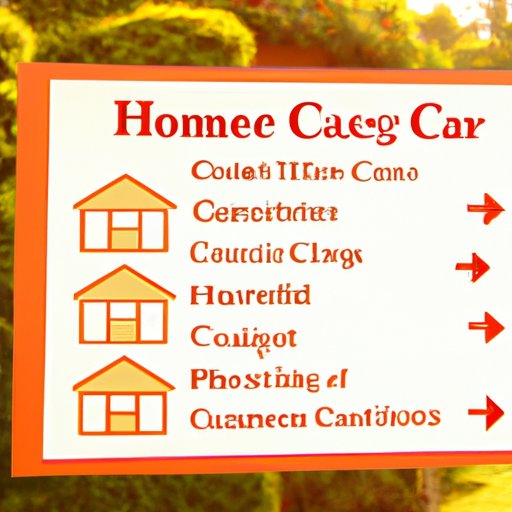Introduction
When a loved one needs to move into a care home, it can be an overwhelming experience. Not only is the decision emotionally difficult, but there are also many practical considerations to address. One of the most important of these is the cost of care homes. Knowing what to expect in terms of weekly costs is essential for making the best possible decision for your circumstances.
This article explores the different types of care homes available and their associated costs. It covers various factors that affect the cost of care homes per week and provides information on the national and regional averages. Additionally, we will look at ways to make the most of your budget when selecting a care home.
Comparing Care Home Costs: An Overview of Weekly Prices
When considering the cost of care homes, it is important to understand the different types of care available. Care homes are divided into three main categories: residential care homes, nursing care homes, and assisted living facilities.
The price of each type of care home varies depending on several factors. These include location, level of care, and amenities. It is also important to consider if government subsidies or other funding sources are available.
What is the Average Cost of a Care Home Per Week?
The national average cost of care homes per week is around £700. However, this figure can vary significantly depending on region and type of care home. In London, for example, the average cost is closer to £900 per week.
In addition, the cost of care homes can be higher in rural areas due to increased transportation costs and limited availability of care homes. On the other hand, care homes in urban areas may be more expensive due to higher demand and greater competition.
Exploring Different Types of Care Homes and Their Associated Costs
Residential care homes provide basic care for elderly people who need help with everyday tasks such as washing and dressing. The average cost of residential care homes per week is around £550-£650.
Nursing care homes provide medical assistance as well as personal care. They are typically more expensive than residential care homes, with an average cost of £750-£850 per week. The cost can also be higher if the resident requires specialist care.
Assisted living facilities offer a combination of independent living and supportive services. The average cost of assisted living per week is around £600-£800.

A Guide to Choosing the Right Care Home and Its Cost
When choosing a care home, it is important to evaluate your needs and identify the type of care that best suits them. Researching different care home options can help you find the right balance between cost and quality of care.
It is also important to understand your financial resources and determine if you can afford the cost of care homes. Government subsidies may be available to help cover the cost of care homes. Other funding sources such as charitable grants, loans, and private insurance may also be available.

Understanding the Factors That Impact Care Home Costs Per Week
Location is one of the main factors influencing the cost of care homes. Care homes located in more affluent areas tend to be more expensive than those in less affluent areas.
The level of care provided by the care home is another important factor. Care homes that provide more advanced levels of care will usually be more expensive than those providing basic care.
Finally, the amenities offered by the care home can have an impact on the cost. Care homes with additional features such as gyms, libraries, and swimming pools will typically be more expensive than those without these extras.

Making the Most of Your Budget When Selecting a Care Home
Government subsidies can be a useful way to reduce the cost of care homes. Depending on your circumstances, you may be eligible for funding to help cover the cost of care homes. You should research the options available in your area to see if you qualify.
There are also other funding sources available to help cover the cost of care homes. Charitable grants, loans, and private insurance are all potential sources of financial support. It is important to explore all of your options before making a decision.
Conclusion
In conclusion, care homes can be a costly expense for families. The cost of care homes per week varies depending on the type of care, location, level of care, and amenities. Understanding the different types of care homes and the factors that affect their costs can help you make an informed decision about the best care home for your needs.
Additionally, exploring government subsidies and other funding sources can help make care homes more affordable. By researching your options and understanding the factors that influence cost, you can make the most of your budget when selecting a care home.
(Note: Is this article not meeting your expectations? Do you have knowledge or insights to share? Unlock new opportunities and expand your reach by joining our authors team. Click Registration to join us and share your expertise with our readers.)
